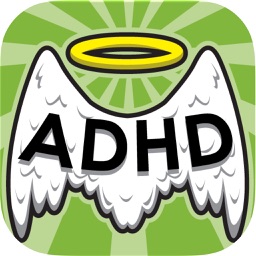Supporting a teenager with Attention-Deficit/Hyperactivity Disorder (ADHD) requires a blend of empathy, practical strategies, and consistent encouragement. ADHD, characterized by symptoms such as inattention, hyperactivity, and impulsiveness, can impact a teenager’s academic performance, social interactions, and self-esteem. As a parent, guardian, or mentor, understanding how to effectively support a teenager with ADHD can make a significant difference in their development and well-being.
Understanding ADHD in Teenagers
Effects of ADHD is a neurodevelopmental disorder that affects the brain’s ability to regulate attention and behavior. In teenagers, the symptoms of ADHD can manifest in various ways, including:
Difficulty focusing on tasks, frequent distractions, and problems with organization.
Excessive movement, restlessness, and difficulty staying still.
Acting without thinking, making hasty decisions, and interrupting others.
Recognizing these symptoms and their impacts on daily life is crucial in providing the appropriate support.
Building a Supportive Environment
Create a Structured Routine
Teenagers with ADHD thrive in environments that offer consistency and predictability. Establishing a structured routine helps them manage their time and responsibilities more effectively. Develop a daily schedule that includes specific times for studying, extracurricular activities, and relaxation. Use visual aids like calendars or planners to help your teenager keep track of their commitments.
Set Clear and Realistic Goals
Help your teenager set achievable goals for their academic and personal life. Break larger tasks into smaller, manageable steps, and celebrate their progress. This approach not only makes tasks seem less overwhelming but also builds their confidence and motivation.
Provide Organizational Tools
ADHD often affects organizational skills, so providing tools and strategies to help with organization can be beneficial. Consider using:
Encourage your teenager to keep a daily to-do list and prioritize tasks.
Use alarms or reminder apps to help them remember important deadlines and appointments.
Utilize folders, binders, or digital apps to keep track of school assignments and notes.
Academic Support
Communicate with Teachers
Establishing a partnership with your teenager’s teachers is vital. Discuss your teenager’s needs and work together to create an Individualized Education Plan (IEP) or a 504 Plan if necessary. These plans can provide accommodations such as extended time on tests, a quieter workspace, or the use of assistive technology.
Implement Study Strategies
Adopt study strategies that cater to your teenager’s learning style. Techniques such as breaking study sessions into shorter intervals, using mnemonic devices, and incorporating hands-on activities can improve focus and retention. Encourage the use of active learning methods, like summarizing information aloud or teaching concepts to someone else.
Foster Self-Advocacy Skills
Encourage your teenager to take responsibility for their learning and advocate for themselves. This includes communicating their needs to teachers, seeking help when needed, and understanding their strengths and weaknesses. Teaching these skills empowers them to navigate academic challenges independently.
Emotional and Social Support
Promote Self-Esteem and Resilience
Teenagers with ADHD often face criticism and frustration, which can impact their self-esteem. Provide positive reinforcement and emphasize their strengths and accomplishments. Encourage them to engage in activities they enjoy and excel in, which can build their confidence and resilience.
Support Social Skills Development
Social interactions can be challenging for teenagers with ADHD due to impulsivity or difficulties with social cues. Role-playing social scenarios, providing guidance on appropriate behavior, and encouraging participation in group activities can help them develop better social skills. Facilitate opportunities for them to connect with peers who share their interests.
Encourage Healthy Coping Mechanisms
Teenagers with ADHD may experience heightened stress and frustration. Help them develop healthy coping strategies such as mindfulness, exercise, or creative outlets like art or music. Encourage open communication about their feelings and be supportive when they face setbacks.
Promoting Healthy Lifestyle Choices
Ensure Adequate Sleep
Sleep is crucial for managing ADHD symptoms. Establish a consistent bedtime routine and create a sleep-friendly environment by minimizing distractions and ensuring adequate rest. Discuss the importance of sleep with your teenager and encourage healthy sleep habits.
Encourage Regular Physical Activity
Physical exercise has been shown to improve focus, mood, and overall well-being in individuals with ADHD. Encourage your teenager to engage in regular physical activity, whether through sports, recreational activities, or simply daily walks. Exercise can help manage hyperactivity and reduce stress.
Promote a Balanced Diet
A balanced diet supports cognitive function and overall health. Encourage your teenager to eat a variety of nutritious foods and limit the intake of sugary or highly processed snacks. Involving them in meal planning and preparation can also foster healthy eating habits.
Managing Medication and Professional Support
Monitor Medication Effectiveness
If your teenager is prescribed medication for ADHD, monitor its effectiveness and any potential side effects. Regularly communicate with their healthcare provider to make any necessary adjustments. Understanding how the medication affects your teenager can help you provide better support.
Seek Professional Counseling
Therapy or counseling can be beneficial for teenagers with ADHD to address emotional challenges and develop coping strategies. Cognitive-behavioral therapy (CBT) is one approach that can help them manage symptoms and improve their self-regulation skills. Encourage your teenager to participate in therapy sessions and support them in applying the skills learned in therapy to their daily life.
Join Support Groups
Support groups for parents and teenagers with symptoms of ADHD can offer valuable resources and a sense of community. These groups provide an opportunity to share experiences, gain insights, and receive support from others who understand the challenges of living with ADHD.
Conclusion
Supporting a teenager with ADHD involves creating a structured environment, fostering self-advocacy, and promoting emotional well-being. By implementing these strategies and maintaining open communication, you can help your teenager navigate the challenges of ADHD and develop the skills needed for success. Remember that patience, understanding, and consistent support play a crucial role in their growth and development.
